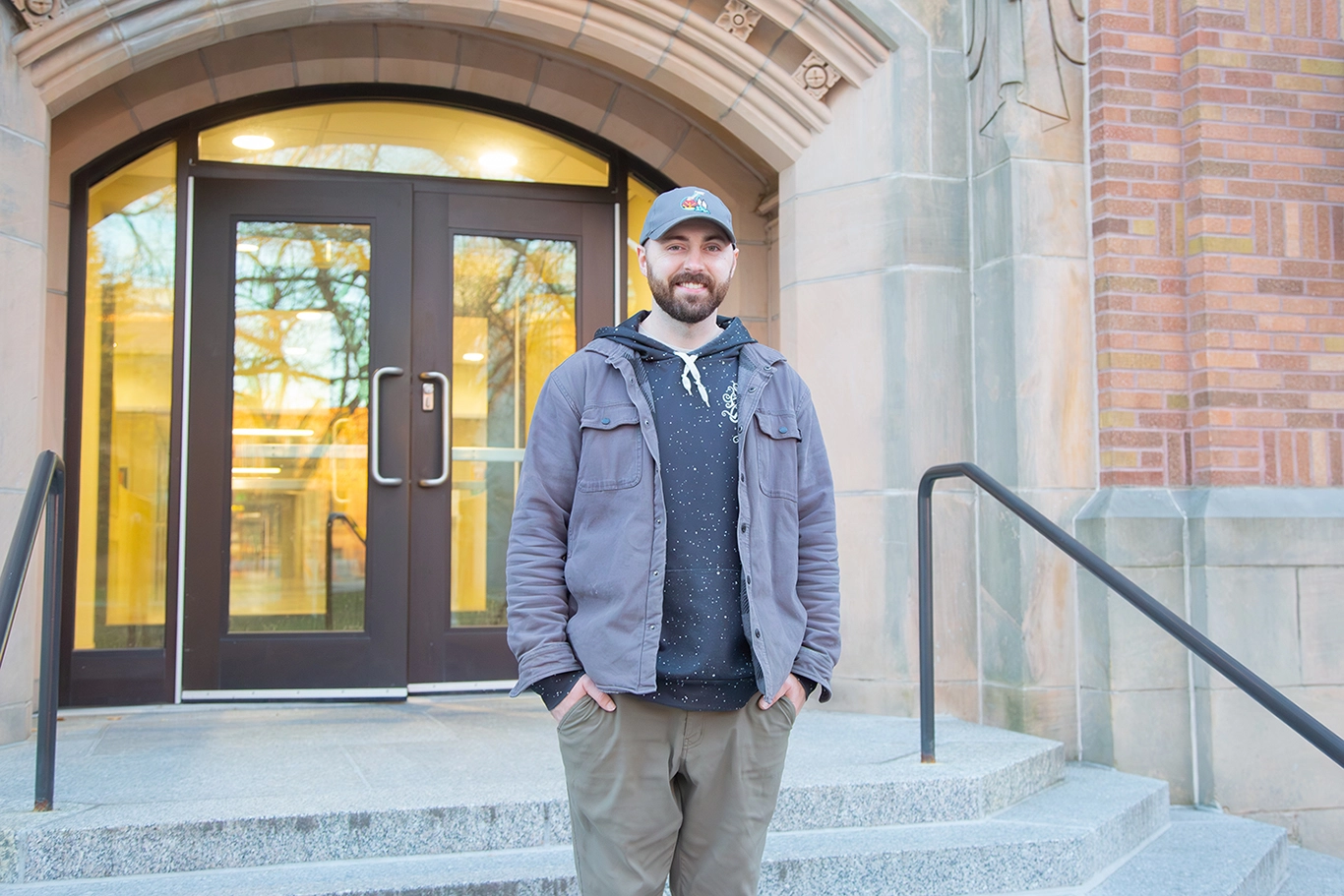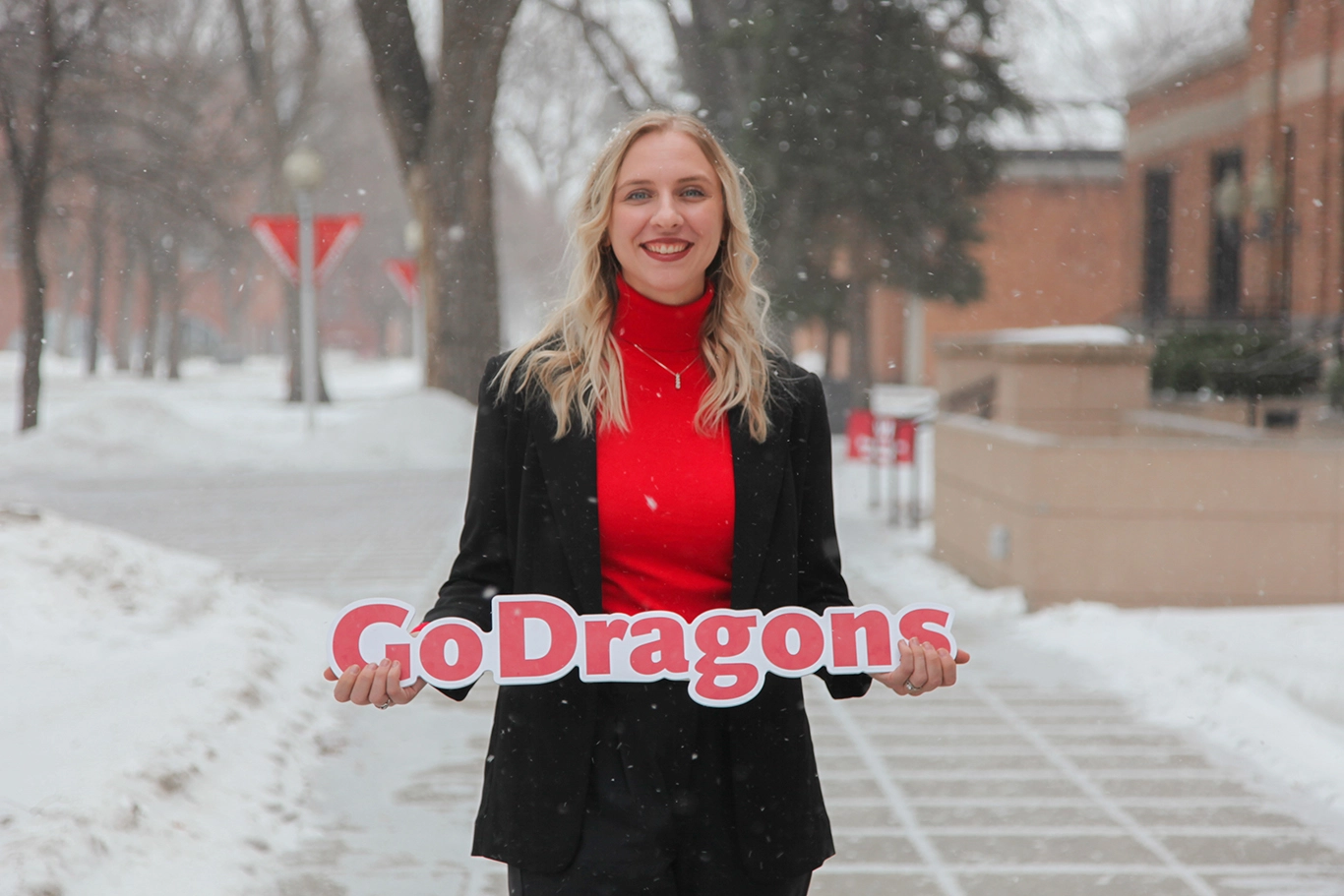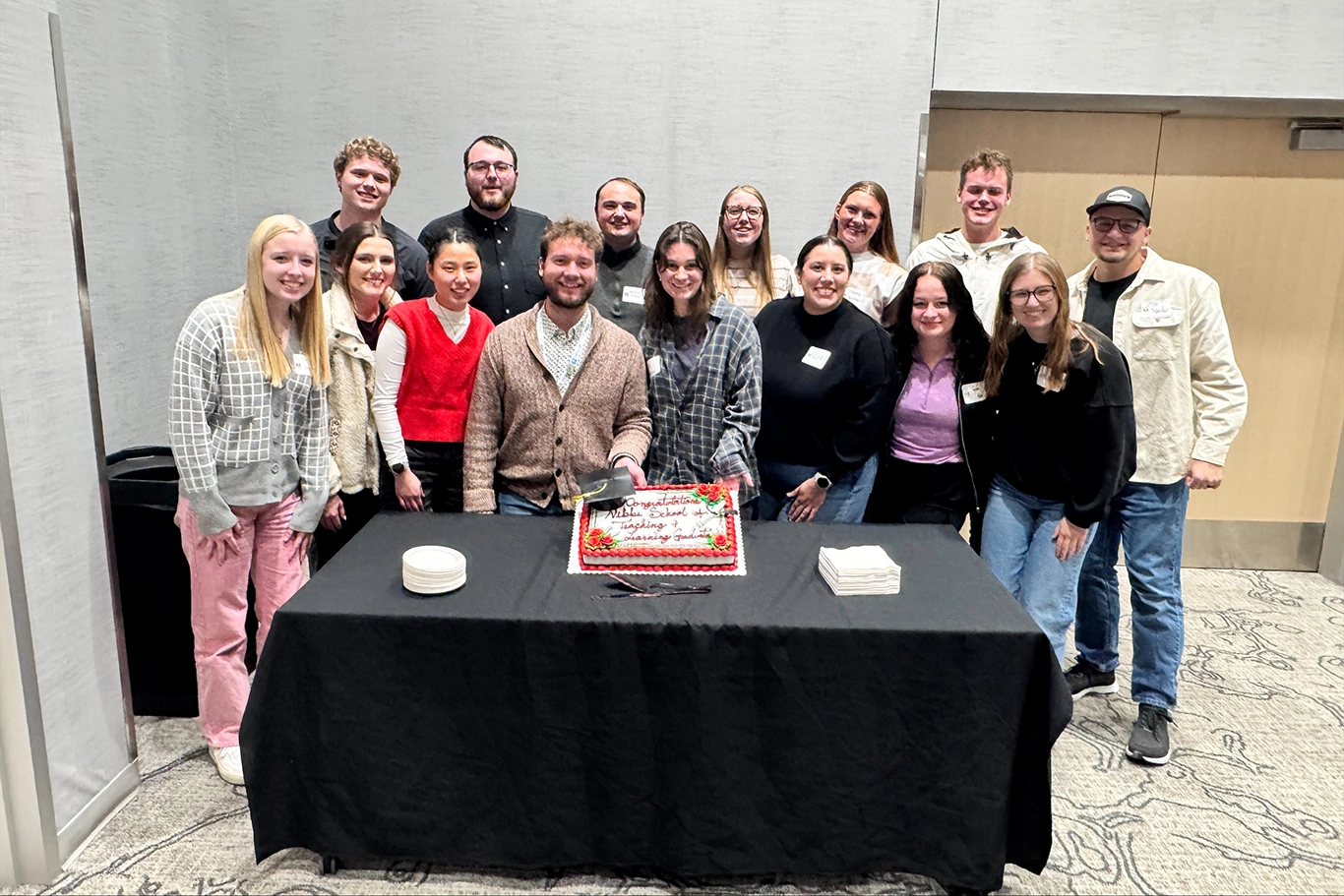Computer Science Graduate's Tenacity Shapes Sustainable Business
The value of an education often extends beyond the curriculum taught, the exams passed and the content of textbooks. For many MSUM graduates, the value of an education lies in the grit, curiosity and heart reinforced in their time earning their degree. This is especially true for 2016 computer science graduate Rolland Elendu.
Elendu’s grit was tested as he navigated the logistical challenges of establishing the only regional textile recycling facility in 2017. His humility was needed to persist despite operating his business at a loss in its first three years. His heart was on full display as he found a way to recycle millions of pounds of waste.
If it weren’t for those traits, combined with the skills picked up in his upbringing, Elendu’s business may not have survived its first five years.
The Togo, West Africa native spent many of his formative years working in his father’s textile recycling facility. Textile recycling involves collecting tons and tons of used clothing, blankets and other textiles before sending them to “sorters” around the world. Sorters separate the textiles by category and sell them, giving new life to old fabrics.
After growing up, Elendu, at the recommendation of his parents, ended up studying computer science at MSUM. His studies helped hone his problem solving and critical thinking ability as he mastered various major-specific skills. His passion for sustainability and familiarity with textile recycling guided his next move: after graduating, he stepped away from computers and back to his roots. In 2017, he opened Elendu Textiles in Fargo - the only textile recycling facility within four hours of Moorhead.
The experience in his father’s facility and skills he refined studying computer science paid dividends while the young entrepreneur established his business. He admits the first few years were difficult. He faced the challenge of educating the community about the unfamiliar concept of textile recycling. He struggled with a supply reduction during the early days of the COVID-19 pandemic. His business did not turn a profit in its first three years. But trusting in himself, he continued on.
“Patience is the biggest (lesson I’ve learned). The majority of businesses fail in their first five years. It takes patience and determination to see it through. You need to stick to your gut and believe in yourself,” says Elendu.

Today, it’s apparent Elendu’s self-trust has paid off. In his north Fargo facility, he is dwarfed by a 15-foot tall mountain of textiles waiting to be processed. Many of the clothes in the pile are overstock from second-hand stores that do not have room to store the extra material. Those fabrics will soon be fed through a baler machine. Once processed, they will be spit out in 1,100 – 1,200 pound bales and stacked. Once three dozen of these half-ton bales are stacked, they are shipped out to sorters around the world. Elendu watches this life-cycle unfold three to four times each month.
If these clothes weren’t brought to his facility, Elendu says nearly 85% of it would end up in landfills somewhere in the United States. He estimates his business has diverted more than 9 million pounds of textiles – the equivalent of 360 school busses kept out of landfills. The Environmental Protection Agency (EPA) estimates the environmental impact of keeping those clothes out of the landfill is the equivalent of removing more than 9,000 vehicles from the road. He sees his business not only as a way of making a living, but also as a means of preserving our planet.
Elendu says more community members have begun to recognize his facility as a place to sustainably get rid of clothes, but he hopes to use his computer science background to further drive familiarity of textile recycling. The entrepreneur is now in the early stages of developing an application which will connect consumers directly with nearby recyclers. He envisions a future in which consumers can leave their clothes in bins outside to be collected, similar to garbage collection. The idea is that removing barriers to textile recycling will lead more to participate and divert more textiles from landfills.
“This industry is pretty old. There hasn’t been any merge with technology like other industries. We don’t have a way of tracking a lot of things and a lot of the data we have can be tracked better,” says Elendu.
His path from Togo to MSUM to entrepreneurship was anything but straightforward, but along the way Elendu has tackled the challenges with a sense of grit, heart and humility only a Dragon can. Beyond developing his application and growing his business, Elendu hopes to serve as an advocate for sustainability in the community. He welcomes opportunities to speak about the importance and impact of recycling, and often presents to regional organizations and classrooms. He encourages anyone trying to make a positive impact on the environment to begin recycling, and looks forward to furthering environmental causes.
With his sense of tenacity and ability to persevere, Elendu’s impact may even outgrow his textile mountains.
You can donate clothing to Elendu by contacting him through his company's website.
Make Sure Your Story Is Heard
Let us know how your life has been changed by being a Dragon: tell us your Minnesota State Moorhead story today!
Send Us Your Story


